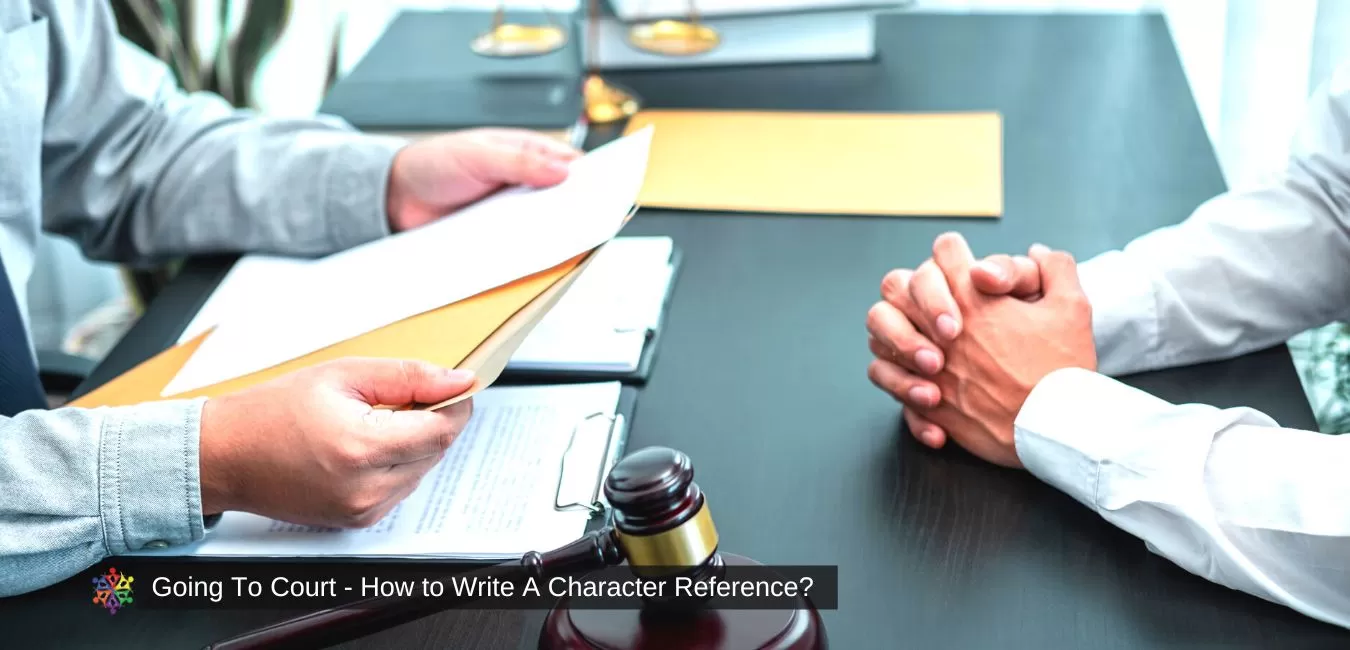A character reference is a legal document – essentially a formal letter – that demonstrates the person’s good character involved in legal proceedings. The writer is usually a person who knows the accused individual and can vouch for them. In Court, a character reference must be clear and specific.
The tone and content of the reference are crucial during legal proceedings to allow a magistrate, registrar, or judge to consider the letter in light of the legal charges. However, the style and content of the character reference will differ according to the legal proceeding. It can range from a serious criminal offence to a minor road traffic offence. Ultimately, the goal of the character reference is to genuinely portray the character of the accused individual.
A character reference should provide greater insight into the defendant’s circumstances and address their attributes. It provides context to the Court and creates a better and more accurate impression of the offender. A character reference is an important aspect of sentence hearing and can be a valuable tool that helps a client achieve the best possible result.
What is a character reference?
A character reference is a letter presented in Court. It can also be called a personal reference. It describes the individual’s character to the Magistrate – especially if the person in question is pleading guilty. The Magistrate will consider the character reference when finalising the court outcome. The good news is – you can have as many character references as you need. However, two to three character references are ideal – each with a one-page length.
The writer of the letter is a referee. According to ACT law, your referee must be over 18 and know you personally to vouch for you. A two year or more acquaintance is ideal. Moreover, to build a stronger case, try to find a referee who has a good standing in the community – such as a teacher, employer, medical professional, or university professor. However, the referee does not need to attend Court.
How do I write a character reference?
Writing a character reference is more technical than difficult. While it describes the referee’s genuine and honest opinion about the accused, it can significantly influence the Court’s final decision. It must have a formal tone and cover any relevant details necessary. If the legal matter is in the Children’s Court, the referee must address the character reference to The Presiding Magistrate ACT Children’s Court.
If the legal matter is in the Magistrates Court, the referee must address the character reference to The Presiding Magistrate ACT Magistrate Court. The referee must mention their name, address, occupation, and other details on the document with their signature and the accused’s name. The letter must also include the length of acquaintance/friendship/professional relationship. Moreover, the referee must state that they are aware of the charges you are in Court for and any and all previous legal offences. However, the referee can also include your remorse regarding the offence and any valuable experience.
Your referee can also mention changes in your behaviour after the offence. Generally, the letter can consist of any relevant detail sufficient to judge your character. The referee can mention work, sports, charities, hobbies, and any other community-related activities that you may be involved in. One of the crucial elements in a letter are your experiences – including any special issues that you may be dealing with that might have contributed to the offence.
The referee can usually vouch for you here and mention if your behaviour was strange or out of the ordinary. Moreover, if your referee is also willing to support your rehabilitation, it would be a positive factor that could influence the Court’s final decision. Another positive factor could be your employer’s (as your referee) willingness for you to continue employment.
What is the layout of a character reference?
The reference letter is usually typed out and not hand-written, given the professional purpose. Remember to make copies of the character reference. Give the original letter to the Magistrate and keep one copy for yourself.
The referee must be completely honest and only comments on things they know about the person. Here are some of the key points you must mention in your character reference. If you are writing a character reference, this is the typical order of information –
- Introduce yourself – Include your name, job, and other qualifications
- Mention your relationship with the accused individual – Include the length of your acquaintance/friendship/professional relationship and frequency of contact.
- Describe their general character and reputation – Give your honest and subjective opinion.

- Talk about the legal charges – Mention your knowledge of the person’s charges, and their reaction towards the offence. Include any changes in behaviour or remorse you may have noticed, along with any compensation, counselling, or punishment – have they paid the victim for damages or lost their job or reputation?
- Discuss their background and related personal problems – Mention their background and any issues (drug use, financial issues, psychological issues) that may have contributed to the offence. Include any attempts to overcome the mentioned issues as well.
- Mention whether or not their offence aligns with their character and actions
- Mention any prior convictions and how they may have affected your opinion about their character
- Include any contribution to society through volunteer work or other special achievements in school or employment
Things to avoid in a character reference
A character reference is an important document that can often significantly influence the Court’s outcome. Hence, it is crucial that the reference letter is laid out correctly, completely honest, follows the typical pattern, and includes relevant details. However, it is also important to avoid the following actions while writing a character reference –
- Providing false or misleading information in the character reference for whatever purpose
- Suggesting penalties or legal outcomes to the Magistrate or judge for the relevant case
- Criticising the law, prosecutor, police, or the victim
- Antagonising the Magistrate or Judge in the character reference
- Using an off-topic or outdated reference
- Long reference letters (exceeding a single page) unless necessary
- Imposing your legal opinions on whether the charge is justified
- Using aggressive or disrespectful language
Other important details in a character reference
Make sure to sign and date the character reference and include contact details. Without these three details, the reference letter is practically useless. Moreover, use a letterhead where applicable. If you run your own business or work for a company, you may be able to access an official letterhead. If so, type out the character reference on the letterhead to give the Court a better understanding of the referee and their standing in the community.
Address the character reference to “The Sentencing Magistrate” or “The Sentencing Judge.” It depends on which Court the defendant will go to. However, it is crucial to correctly address a character reference.
No two charges will be the same. Hence, the character reference must appeal to the nature of the criminal offence. The letter must only include the characteristics of the accused individual that relate to the specific criminal charges. For example, a drink driving charge typically focuses on the offender’s rehabilitation to take the steps that can prevent them from driving whilst intoxicated. However, a serious sexual assault charge will require further details to describe the offender’s non-violent character of relevant rehabilitation. The character reference details will be based on the offender’s charges in Court.
It may be ideal for providing a character reference from an impartial third party in some situations. The impartial referee can provide further assurance in situations like drink driving charges or traffic offences. A referee outside of your family/friend circle ensures that you are not a threat to yourself or anyone around you.
Let United Legal take care of your legal matters
The referee must send the character reference to the defendant or their lawyer. They can’t send it directly to the Magistrate or Judge. The lawyer will then check whether the character reference is helpful to the case and necessary for the criminal charges involved.
Writing a character reference isn’t as straightforward as you may think. While the details and opinions are entirely dependent on the referee, it is crucial that you find a lawyer to take a look at the letter as well. Hence, an experienced lawyer with the right expertise will verify the letter, ensure it follows the necessary layout, and make any necessary changes. The letter can influence the Court’s final decision – which is why you must ensure that it leaves a positive impression on the Magistrate or Judge.
At United Legal, we have a team of professional and experienced criminal lawyers who can fight for your legal rights. We represent you in Court, streamline the complicated legal processes, and ensure you have a strong case in Court. Contact one of our lawyers today and write the character reference that leaves a positive impression in Court.
UNITED LEGAL
Canberra’s Best Lawyers
For our legal support services Contact us at (02) 6295 2283
Visit us at






